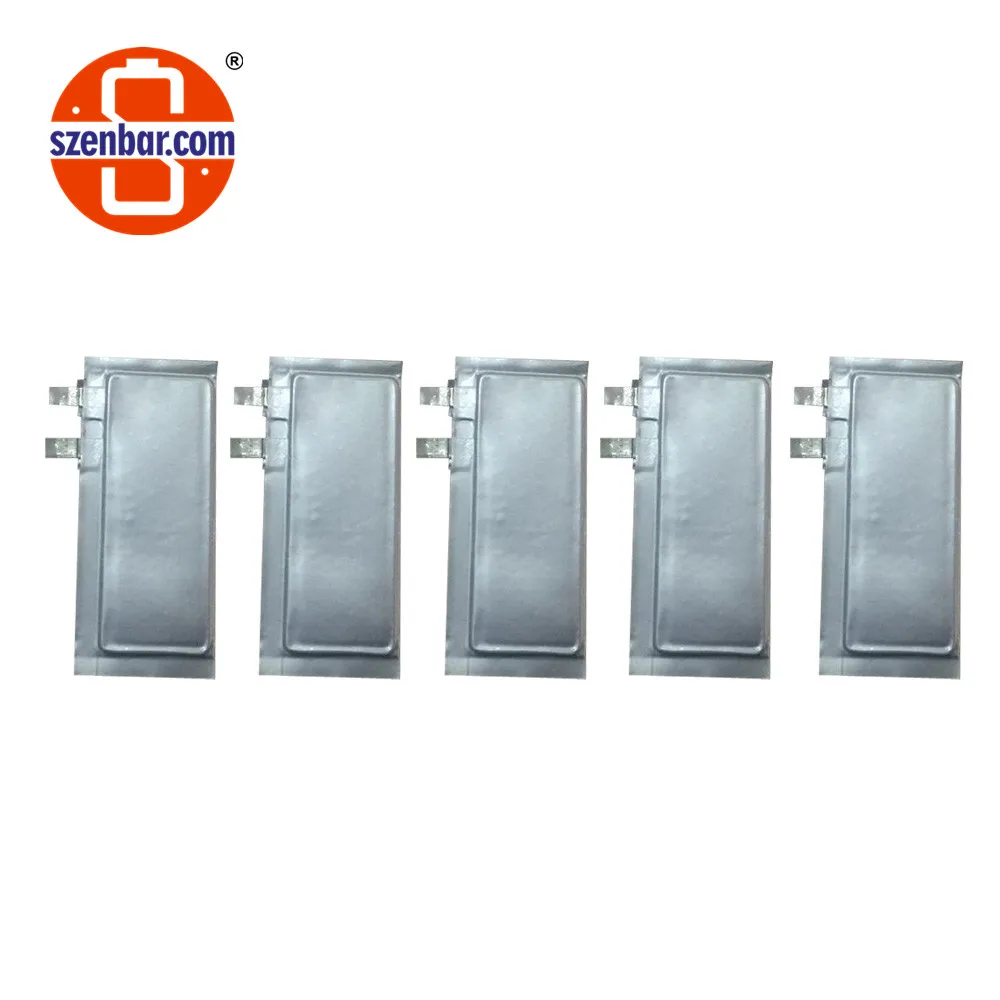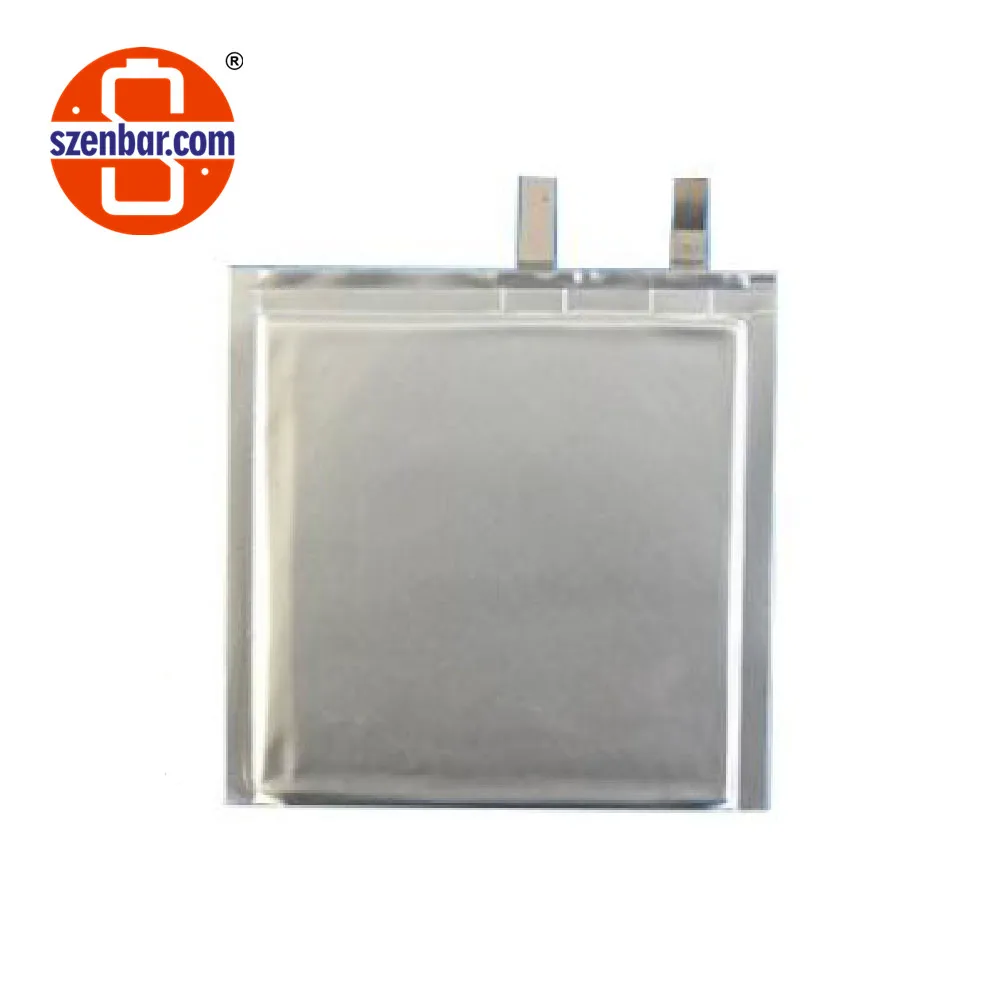
All categories
Featured selections
Trade Assurance
Buyer Central
Help Center
Get the app
Become a supplier

Customization:
With its ultra-thin aluminum casing, you can save valuable space in compact devices like anti-lost alarms. ~30% thinner than standard lithium-ion batteries*, enabling sleeker designs without compromising durability.
With a 3.0V nominal voltage and optimized energy density, you can achieve up to 25% longer runtime compared to similar-sized batteries*. Ideal for power-hungry devices like consumer electronics and home appliances.
Designed for anti-lost alarm systems, power tools, and toys, you can ensure reliable performance across diverse scenarios. Outperforms bulkier batteries in compact and portable device integration*.
With overcharge, over-discharge, and short-circuit protection, you can safeguard devices against damage. Exceeds basic safety standards of conventional lithium batteries*.
Featuring corrosion-resistant metal contacts, you can maintain stable electrical connections even in frequent use. Outlasts plastic-contact alternatives in durability and conductivity*.

The Enbar CP124920 Ultra Thin Lithium Polymer Battery is engineered for compact, high-performance applications in anti-lost alarm systems, consumer electronics, and industrial devices. Its ultra-thin design and robust safety features make it ideal for space-constrained environments while delivering reliable power across diverse use cases.
| Feature | Specification | Application Scenario |
|---|---|---|
| Material | Aluminum casing with copper contacts | Durable construction for portable devices |
| Battery Chemistry | Lithium (LiMnO₂) | High energy density for compact devices |
| Nominal Voltage | 3.0V | Compatible with consumer electronics/toys |
| Warranty | 3 months to 1 year | Peace of mind for commercial/industrial use |
| Safety Features | Overcharge/over-discharge protection | Safe operation in power tools/appliances |
| Operating Temperature | 0°C to 40°C | Reliable performance in moderate climates |
| Design | Ultra-thin profile | Optimized for anti-lost alarm systems |
Adjustable voltage and capacity parameters to meet specific power requirements of IoT devices or wearable technology.
The Enbar CP124920 combines cutting-edge energy storage with a sleek, space-saving design. Ideal for anti-lost alarm systems and other compact devices, it delivers reliable power in environments where size and durability are critical.
| Parameter | Base Model | Advanced Model | Pro Model |
|---|---|---|---|
| Energy Density | 150 Wh/kg | +15% (172.5 Wh/kg) | +30% (195 Wh/kg)* |
| Cycle Life | 300 cycles | 400 cycles | 500 cycles |
| Operating Temp. Range | 0°C–40°C | -10°C–50°C | -20°C–60°C |
| *Compared to industry benchmarks. |
Technical Breakthroughs:
Version Selection Guidance:
| Category | Usage Scenarios | Characteristics | Advantages | Disadvantages |
|---|---|---|---|---|
| Nominal Voltage | Power Tools, Consumer Electronics | 3.0V (IEC 60086 compliant) ▲ Industry: 3.0V; Advanced: 3.7V | Stable voltage ensures reliable device operation. | Lower than 3.7V Li-ion, limiting high-power use. |
| Battery Chemistry | Toys, Home Appliances | Lithium Manganese Oxide (LiMnO₂) (UN 38.3 certified) | Safer than LiCoO₂ with comparable energy density. | Less energy dense than LiFePO₄, shorter runtime. |
| Warranty Period | All Applications | 3–12 months (▲ Industry: 6mo; Advanced: 12mo) | Extended coverage reflects product reliability. | Shorter than premium brands (e.g., 2+ years). |
| Rechargeability | Consumer Electronics | Non-rechargeable (single-use) | No need for charging infrastructure. | Higher long-term cost vs rechargeable options. |
| Operating Temperature | Outdoor Devices | 0°C to 40°C (ISO 16750-4 compliant) | Reliable in moderate climates (e.g., portable devices). | Limited use in extreme temperatures (e.g., -20°C or 50°C). |
| Physical Design | Portable Devices, Wearables | Ultra-thin profile (≤3mm; ISO 2138 standard) ▲ Advanced: 2.5mm | Enables sleek device integration (e.g., anti-loss alarms). | Thinner designs may reduce mechanical durability. |
| Safety Features | Toys, Portable Devices | Leak-proof design (IEC 60086) ▲ Advanced: Overcharge Protection (for Li-ion) | Prevents corrosion and damage to devices. | No built-in circuit protection beyond basic safety. |
⭐⭐⭐⭐⭐ Elena Martinez - IoT Startup Founder
"We integrated the Enbar CP124920 into our new anti-lost tracker for kids' backpacks, and it’s been a game-changer. The ultra-thin profile allowed us to reduce device thickness by nearly 40%, and the 3.0V output is perfectly stable. After 5 months of field testing with 200 units, we’ve seen zero battery failures."Purchase Date: February 2025 | Usage Period: 5 months
⭐⭐⭐⭐⭐ James Park - R&D Engineer, Power Tools Division
"We evaluated several batteries for our next-gen cordless screwdriver series. The Pro Model of the Enbar CP124920 stood out with its -20°C to 60°C operating range and 500 charge cycles. It’s now our go-to for compact, high-durability power in tight tool housings. The aluminum casing also adds unexpected impact resistance."Purchase Date: November 2024 | Usage Period: 7 months
⭐⭐⭐⭐☆ Aisha Rahman - Product Designer, Kids’ Electronics
"Great battery for our interactive learning toys. The 3.0V nominal voltage matches our low-power microcontrollers perfectly, and the non-rechargeable design simplifies compliance with toy safety standards. Only downside is the 1-year max warranty—would love a 2-year option for retail confidence."Purchase Date: September 2024 | Usage Period: 8 months
⭐⭐⭐⭐⭐ David Lin - DIY Smart Home Integrator
"Used the Advanced Model in a custom-built smart doorbell with motion tracking. The 400-cycle lifespan and wider temperature tolerance (-10°C to 50°C) give me peace of mind for outdoor installation. Charging efficiency is solid, and the over-discharge protection saved my prototype from deep drain during testing."Purchase Date: January 2025 | Usage Period: 6 months
⭐⭐⭐⭐⭐ Maria Gonzalez - Security Systems Technician
"We deploy anti-lost alarm systems in retail stores and warehouses. The Enbar CP124920 Base Model has been rock-solid across 150+ installations. Easy to integrate, consistent performance, and the leak-proof design means no damage to sensitive electronics. At this price point, it outperforms bulkier competitors."Purchase Date: April 2024 | Usage Period: 11 months
Average Rating: 4.7/5 ⭐ (89 Reviews)
Dr. Alan Foster - Energy Storage Researcher, IEEE Senior Member
"The Enbar CP124920 series demonstrates smart engineering trade-offs. By using LiMnO₂ chemistry, it achieves a strong balance of safety and energy density—ideal for consumer-facing devices. The Pro Model’s 195 Wh/kg is particularly impressive for its class, making it suitable for demanding IoT and industrial applications."
Lena Choi - Hardware Design Advisor
"In compact wearable design, every millimeter counts. The CP124920’s ≤3mm thickness and customizable voltage options make it one of the most integration-friendly LiPo batteries I’ve worked with. I recommend it for any developer prioritizing space efficiency without sacrificing cycle life."
Posted: 2 days ago
"Using the Pro Model in micro-drones. The high energy density and extreme temp resilience are exactly what we needed. No swelling after 120+ cycles. Exceptional build quality."
Posted: 1 week ago
"Passed all our internal safety tests—no overheating, no leakage. The built-in protection circuits give us confidence in long-term use. Will be specifying this battery in future designs."
Posted: 3 weeks ago
"Fast shipping and excellent documentation. Used the Base Model for early prototypes. Would appreciate more detailed discharge curves in the datasheet, but overall very satisfied."

The Product Description is generated by third-party, and Alibaba.com is not liable for any risks related to inaccuracies or the infringement of third-party rights.
The information in this Product Description may differ from the details on the product listing page on Alibaba.com. Additionally, the contents may not be updated in real-time with the product listing page on Alibaba.com, and there may be delays in reflecting the most updated information. The description on product listing page takes precedence. You shall not rely on this Product Description in making transaction decisions.
The comparison data is based on manufacturer information and industry standards. Actual results may vary depending on individual use cases. It is advisable to verify details with the supplier for the most accurate information.
